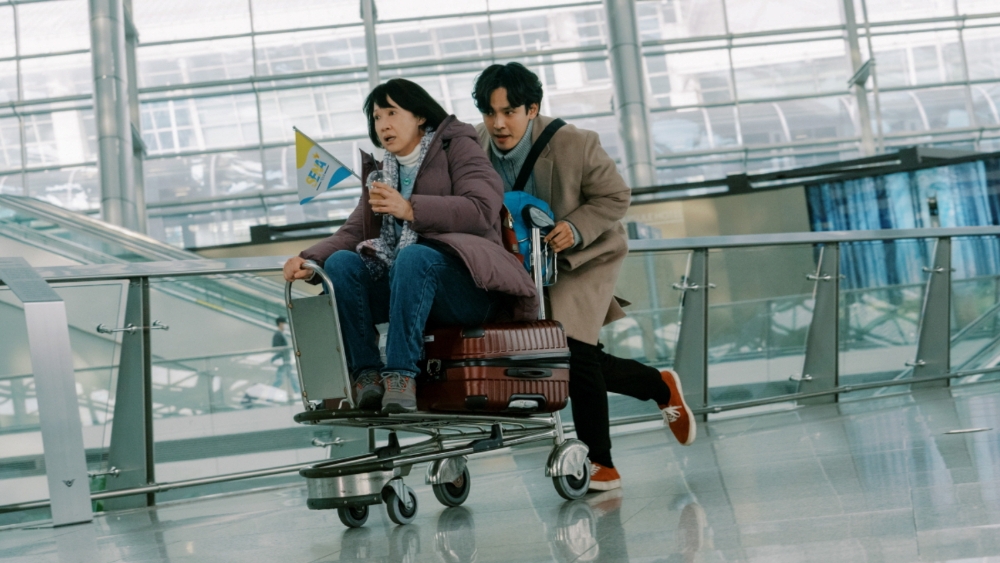
The Far East Film Festival in Italy’s Udine will open with a double bill of He Shuming’s “Ajoomma” and Kai Ko’s “Bad Education.” It will close with Zhang Yimou’s blockbuster period epic “Full River Red.”
In between, the festival will showcase a stunning 78-title array of commercial and art-house films from across East Asia. Operating according to a motto of diversity –implying cultural asymmetries and artistic multiplicities – the 25th edition of the festival will run April 21-29.
Organizers say that their selection “shows in real time how the cinemas of East and Southeast Asia have re-emerged from the gruelling period of the pandemic, not all in the same way and not all with the same results.”
They point to the impact of COVID, politics and emigration from Hong Kong, and the recent resurgence of Cantonese-language cinema.
Similarly, Udine’s organizers note the recent box office struggles of South Korean cinema, as finance and established talent switch from film to TV and streaming. But they conclude that this is “a passing phase that only represents a temporary setback, [and that] Korean cinema will soon be back, more powerful than ever.”
Their evidence is a selection of seven Korean films including: “wonderfully disturbing” horror “The Other Child”; spectacular costume drama “The Night Owl”; and “Phantom,” a spy thriller directed by Lee Hae-young which will soon be released in Italy.
The Hong Kong selection includes: record-breaking courtroom drama “A Guilty Conscience”; nostalgic “A Light Never Goes Out”; lavish crime thriller “Where the Wind Blows”; Anthony Wong’s “Sunny Side of the Street”; and the world premiere of “Everyphone Everywhere,” by Amos Why. The film is an acute, tragicomic reflection on the use and abuse of the mobile phone.
The festival’s anticipated guest list currently shows no celebrity participation from mainland China – Udine’s dates clash with the Beijing International Film Festival has been renewed – but its four Chinese films have each earned critical and box office acclaim. They include the Chinese remake of “Hachiko,” patriotic action-drama “Home-Coming” and period piece “Hidden Blade.”
Other FEFF selection highlight include: the previously announced Mongolian comedy-drama “The Sales Girl”; Indonesian horror “Satan’s Slave: Communion,” by Joko Anwar; court drama “December,” by Japanese-naturalized Indian director Anshul Chauhan; Suzuki Masayuki’s “Yudo,” a comical ode to the Japanese bathhouse tradition; Mikhail Red’s technologically-charged censorship drama “Deleter”; “Gaga,” an examination of Taiwanese indigenous people by Laha Mebow; “Untold Herstory,” Zero Chou’s, prison drama set in Taiwan’s White Terror era; and Thailand’s “You & Me & Me,” directed by Wanwaew and Waewwan Hongvivatana.
The special screenings section includes: “Convenience Story,” Miki Satoshi’s sweet kinky fantasy (Japan 2022), Korea’s “Emergency Declaration,” “Way of Life,” Watanabe Hirobumi’s personal lockdown memories, and “You’ve Got a Friend,” a sado-masochistic dramedy by Japan’s Hiroki Ryuichi.
The festival will celebrate its quarter century of operation by programming a selection of films that have not previously played in Udine, but which are among titles that inspired Italian interest in Asian contemporary cinema. There is also a three-film tribute to festival regular Johnny To from Hong Kong, and a three-film tribute to lifetime achievement award recipient Japanese actor Baisho Chieko.
The retrospective titles include: Hiroki Ryuichi’s “800 Two Lap Runners” (1994); Nonzee Nimibutr’s seminal 1997 Thai gangster movie “Dang Bireley’s and Young Gangsters”; Park Chan-wook’s 1997 crime comedy and second feature “Trio,” Hsu Hsiao-ming’s “Dust of the Angels” from 1992; and crime comedy “Teenage Fugitive,” written by Tsai Ming-liang in 1984, shortly after he had emigrated from Malaysia to Taiwan.













